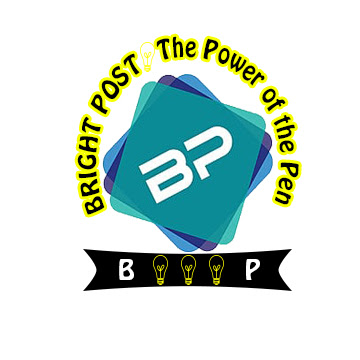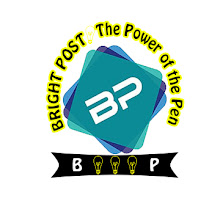Improving the quality of education in Pakistan is crucial for the country's long-term development and prosperity. There are many challenges facing the education system in Pakistan, including low levels of funding, inadequate teacher training, outdated curriculum and materials, and unequal access to education. However, by implementing comprehensive reform strategies, the Pakistani government can work to address these challenges and improve the quality of education for all students. Some potential strategies for reforming school education in Pakistan include increasing investment in education, improving teacher training, enhancing the curriculum and materials used in schools, promoting the use of technology in education, and ensuring equal access to education for all students.
Improving the quality
of education in Pakistan is an important issue that has been the focus of
reform efforts in recent years. Some potential strategies for reforming school
education in Pakistan could include:
Increasing investment
in education: Increasing the budget allocated to education can help to improve
the quality of schools and teaching, as well as increase access to education
for more students.
There are several ways
that the Pakistani government can increase investment in education:
- Allocate a larger percentage of the
national budget to education: The government can increase the budget
allocated to education by setting aside a larger percentage of the
national budget for this purpose.
- Partner with international
organizations and donors: The government can seek funding from
international organizations and donors to support education initiatives
and programs in Pakistan.
- Implement education-specific taxes
or levies: The government can consider implementing taxes or levies
specifically targeted at funding education, such as a tax on tuition fees
or a surcharge on certain goods and services.
- Explore private-sector partnerships
and investment: The government can work with private companies and
foundations to secure funding and support for education initiatives in
Pakistan.
- Increase efficiency and reduce
waste: The government can also look for ways to increase the efficiency
and effectiveness of education spending by reducing waste and eliminating
inefficiencies in the education system.
Improving teacher
training: Ensuring that teachers are well-trained and have the necessary skills
and knowledge to effectively teach their subjects can have a significant impact
on student learning outcomes.
There are several
strategies that the Pakistani government can pursue to improve teacher
training:
- Develop and implement comprehensive
teacher training programs: The government can work with educators and
experts to develop teacher training programs that cover a wide range of
topics, including pedagogy, curriculum development, and classroom
management.
- Provide ongoing professional
development opportunities: The government can also provide ongoing
professional development opportunities for teachers, such as workshops,
seminars, and online courses, to help them stay up to date on best
practices in education.
- Establish partnerships with
institutions of higher education: The government can partner with
universities and other institutions of higher education to provide teacher
training programs and professional development opportunities.
- Increase funding for teacher
training: Increasing the budget allocated to teacher training can help to
improve the quality and accessibility of training programs.
- Implement teacher certification and
licensure programs: The government can implement teacher certification and
licensure programs to ensure that teachers meet certain standards of
competence and professionalism.
Enhancing curriculum
and materials: Reviewing and updating the curriculum to ensure that it is
relevant and aligned with global standards, and providing students with access
to quality learning materials, can help to improve the quality of education.
There are several
strategies that the Pakistani government can pursue to enhance the curriculum
and materials used in schools:
- Review and update the curriculum:
The government can work with educators and experts to review and update
the curriculum to ensure that it is relevant, aligned with global
standards, and prepares students for success in the 21st century.
- Provide access to quality learning
materials: The government can invest in the development and distribution
of high-quality learning materials, such as textbooks, educational
software, and online resources, to support student learning.
- Promote the use of technology in
education: Integrating technology into the classroom, such as through the
use of computers and other digital resources, can enhance teaching and
learning.
- Encourage the use of experiential
and hands-on learning approaches: The government can promote the use of
experiential and hands-on learning approaches, such as project-based
learning and problem-based learning, to engage students and support their
learning.
- Support the professional
development of teachers: Providing teachers with professional development
opportunities can help them to stay up to date on best practices in
curriculum development and teaching, and to effectively incorporate new
materials and technologies into their classrooms.
Promoting the use of
technology in education: Integrating technology into the classroom, such as
through the use of computers and other digital resources, can enhance teaching
and learning.
There are several ways
that the Pakistani government can promote the use of technology in education:
- Invest in the development and
distribution of educational technology: The government can invest in the
development and distribution of educational technology, such as computers,
tablets, and educational software, to schools and classrooms.
- Provide training and support for
teachers: To effectively integrate technology into their classrooms,
teachers will need training and support. The government can provide
professional development opportunities for teachers to help them learn how
to use technology in their teaching.
- Develop and implement technology
policies and guidelines: The government can develop and implement policies
and guidelines for the use of technology in education, including
guidelines for internet safety and responsible use.
- Promote the use of online and
distance learning: The government can promote the use of online and
distance learning platforms to increase access to education for students
in remote or underserved areas.
- Encourage the use of technology in
the development and delivery of educational materials: The government can
encourage the use of technology in the development and delivery of
educational materials, such as by digitizing textbooks and creating online
resources.
Ensuring equal access
to education: Implementing policies and programs to increase access to
education for disadvantaged and marginalized groups, such as girls and children
in rural areas, can help to reduce educational inequalities.
There are several
strategies that the Pakistani government can pursue to ensure equal access to
education:
- Implement policies and programs to
increase access for disadvantaged and marginalized groups: The government
can implement policies and programs specifically targeted at increasing
access to education for disadvantaged and marginalized groups, such as
girls and children in rural areas. This could include initiatives such as
building new schools, providing transportation to schools, and
implementing scholarships and financial aid programs.
- Increase funding for education:
Increasing the budget allocated to education can help to improve the
quality of schools and teaching, as well as increasing access to education
for more students.
- Promote the use of technology in
education: Integrating technology into the classroom, such as through the
use of computers and other digital resources, can enhance teaching and
learning and increase access to education for students in remote or
underserved areas.
- Implement policies to reduce
barriers to education: The government can implement policies to reduce
barriers to education, such as fees and other costs associated with
education, to make it more accessible for all students.
- Promote gender equality in
education: The government can implement policies and programs to promote
gender equality in education and reduce disparities in access to education
between girls and boys.
In conclusion,
reforming school education in Pakistan is a crucial task that requires a
multifaceted approach. By increasing investment in education, improving teacher
training, enhancing the curriculum and materials used in schools, promoting the
use of technology in education, and ensuring equal access to education, the
Pakistani government can work to improve the quality of education and give all
students the opportunity to succeed. While there are many challenges facing the
education system in Pakistan, with the right strategies and policies in place,
it is possible to make meaningful progress toward improving the quality of
education in the country.
By Abdul Qayyum
Student at UOT {Education Department}







0 Comments